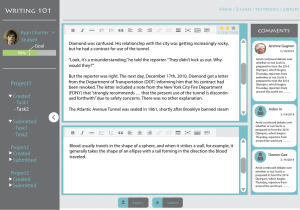This week the University of Alberta is running a Research Data Management Week. They have sessions throughout the week. I will be presenting on “Weaving Data Management into Your Research.” The need for discussions around research data management is described on the web page:
New norms and practices are developing around the management of research data. Canada’s research councils are discussing the introduction of data management plans within their application processes. The University of Alberta’s Research Policy now addresses the stewardship of research records, with an emphasis on the long-term preservation of data. An increasing number of scholarly journals are requiring authors to provide access to the data behind their submissions for publication. Data repositories are being established in domains and institutions to support the sharing and preservation of data. The series of talks and workshops that have been organized will help you better prepare for this emerging global research data ecosystem.
The University now has language in the Research Policy that the University will:
Ensure that principles of stewardship are applied to research records, protecting the integrity of the assets.
The Research Records Stewardship Guidance Procedure then identifies concrete responsibilities of researchers.
These policies and the larger issue of information stewardship have become important to infrastructure. See my blog entry about the TC3+ document on Capitalizing on Big Data.
